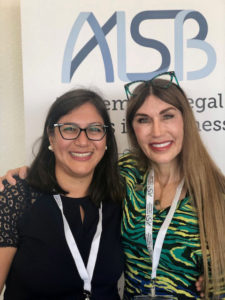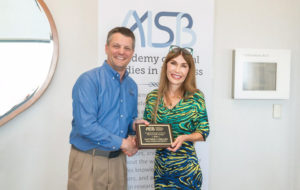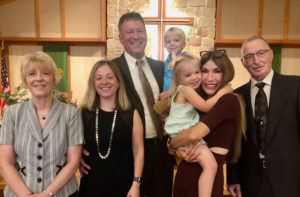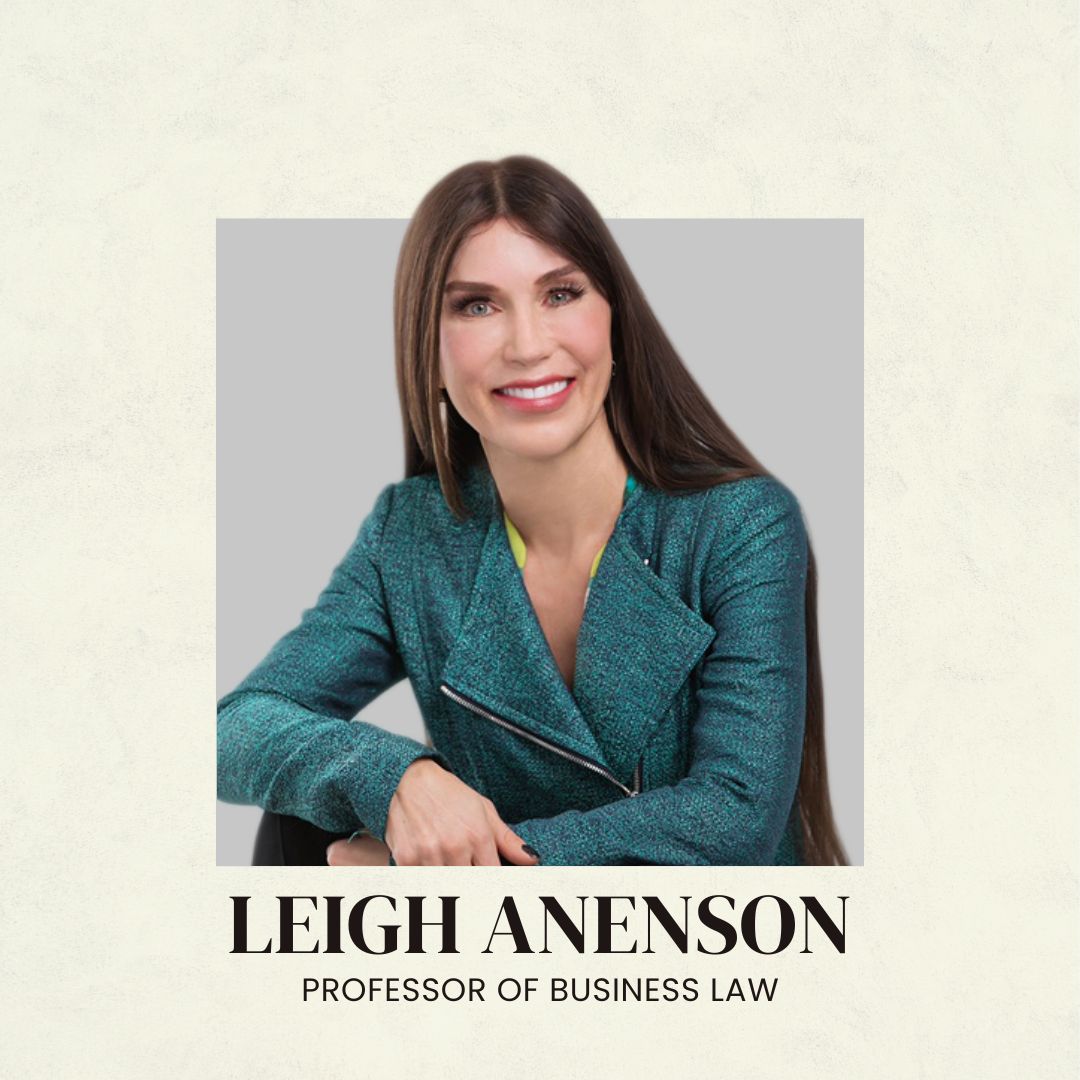CATEGORIES
Careers | Education and Life Skills | People We AdmireOverview:
-
- Growing up in a small town in central California, Leigh loved nature and the open spaces out West.
- From practicing law to coming into academia, Leigh has been interested in how the law changes by absorbing new concepts over time.
- On the frontiers of legal research, Leigh has been a pathfinder in US equity law whose judge-made doctrines prevent the abuse of rights and otherwise maintain the integrity of the legal system.
- On maintaining moral courage and integrity, Leigh shares her experience in navigating ethical dilemmas and conflicts in the legal profession and academia.
- Outlining the implications of the looming government pension crisis, Leigh elaborates on the idea of contract to help solve the problem.
- Leigh’s passion for travel challenges preconceived notions, drawing parallels to the study and practice of law.
1. Can you share your childhood experiences and values?
I grew up in central California in a small town, not the coastal part that people usually think of. I lived in the San Joaquin Valley, where farmers grow fruits, vegetables, and nuts. It was a couple hours from the Sierra Nevada mountains, including Yosemite National Park, and about the same distance from the ocean near Monterey. It was quiet back then without the always busy roads of today.
I love nature and wide open spaces, and out West, you feel like you can achieve anything. Growing up, I believed that people succeeded based on merit. My parents were both math teachers. Mom was also a college coach. I played tennis in college and many sports in high school. My values come from my upbringing and from sports: resilience, learning from failure without excuses, hard work, discipline, and always doing my best.
My parents grew up in rural South Dakota and moved to California in the 1960s for the growing education system and the California dream of accessible education. We’d visit South Dakota every summer, driving for three days, sleeping in the pickup at rest stops, and eating from a cooler. In South Dakota, we stayed in a cabin on a lake with running water but no indoor plumbing. I learned about frugality from my mom, who grew up poor and without health care.
I love traveling, probably because of those road trips. Seeing various parts of the country, even just visiting gas stations and grocery stores, fascinated me. The US is so diverse topographically and culturally that each region feels like a different world. Traveling overseas doesn’t scare me; I enjoy meeting people from diverse cultures and learning that many assumptions are just that—assumptions.
2. Could you share more about your research work and the process and what excites you about it all?
Before coming into academia, I practiced law and had experience in international business consultancy and export trade. I always loved my jobs initially because they were challenging. Once I overcame the challenges, I got bored. I hated being bored, so I’d move on or go back to school. I was always looking for the next challenge. Of all my jobs, academia is where I’ve stayed the longest.
At first, I wasn’t sure if I’d stay because I was used to moving and getting bored eventually. However, I’ve been teaching and researching for over 20 years now and I’m still not bored. Teaching is a constant challenge and learning experience. And if you’re bored in academia with your research, it’s your own fault. You get to choose what excites you as long as you can publish it in the type of journal your school wants. I started researching equity law because I encountered several equity cases as a litigator with issues that no one knew much about. There were no modern books on equity because it hadn’t been studied in the US since the early 1900s. Law schools stopped teaching it as a separate field, thinking it had merged into other subjects.
So I began researching equity to find out what it really is and if it’s still relevant. Equity has distinct features and numerous doctrines and rules, making it challenging to define. I focused on specific defenses to understand their current application. Equity is an entirely judge-made law. I’m interested in how law absorbs new concepts over time. The question for courts is how to adhere to traditional equity principles while adapting to statutes or extending equity’s reach to other areas of the law, a concept known as fusion. Equity helps the law achieve its purposes by preventing unfair legal opportunism through principles like unclean hands or estoppel.
I worked for two state judges (one while I was in school and one after I was out) before litigating. The court system is a wonderful learning environment and state court cases largely concern judge-made law like equity and contracts. Judge-made law fascinates me, and it’s what I teach too. It’s always evolving based on experience, which Karl Llewellyn described as creating something new while also maintaining the old. Judge-made law involves complex, human decision-making, incorporating values and indeterminacy, unlike answering factual questions in business research. Law students (and business students taking law classes) often seek certainty but must learn to analyze legal principles and understand the values guiding judicial decisions. This critical thinking applies beyond law to business and life, helping navigate ambiguity and conflicting principles in complex situations.
3. What change do you think is required in the education system either internationally or in America?
Post-pandemic education, including the advent of AI, is a time of profound change. But systems, including the education system, are not great at changing. We’re not the best at being nimble and flexible like we tell our students and businesses they need to be. I was an associate director of a center, but I’m not a dean, provost, or president, and I’m sure they’re all thinking of the changes required.
From my perspective of teaching students, I’ve noticed since COVID-19 that students seem to have forgotten how to learn. Maybe this is an old-school perspective, but they simply need a lot of help now. For example, I tell my students they need to make an outline because that’s how to synthesize and learn material for law. I always suggest they make an outline, and then I’ll help them with it so they have an understanding of what an outline is. To make an outline, you must first take notes. Pedagogy studies show that if you’re writing, even doodling, while your professor is talking you’re retaining more than if you’re not. But students like shortcuts, and ask me to share my notes and outline. I know doing that would be depriving them of the deep kind of learning that they need to do.
Students are not retaining the material they’re being taught. With e-learning and online reading, the process of research and active learning from books is lost. A professor friend of mine, Jennifer Gershberg (jgtalks.org) has left academia to give talks to students on these issues, like how to study, manage time, and other tips for starting college which I believe are very helpful. If colleges have learning to learn as part of their boot camp for incoming students, I think it would help them succeed. I feel like students need to learn how to learn again, regardless of the subject.
4. What are some of the values that shape your life? And how do you deal with conflicts or ethical dilemmas if you ever face them?
I guess the longer you live, the more you face ethical dilemmas or moral conflicts. I’ve always felt like I was someone who had moral courage. Sometimes that’s been tested. It’s been difficult in certain situations, but I’ve always tried to steel myself. I’ve tried to do the right thing, even when it’s hard and even when it’s going to have negative consequences for me. And you need to get over the fact that many of the challenging decisions you make or actions you take will not receive credit or even be known to others. So waiting to do the right thing until you’re assured of applause or flowers is the wrong way to live your life.
I’d like to end my life thinking I put back into life more than I took out of it. It might be just helping students or colleagues and giving them faith in themselves when they don’t have it or giving them a pat on the back when they need it to get them on their way. I also think about having integrity, being conscientious, and caring about others. A life-long learning mindset is fundamental and should apply to yourself. It is about reflecting on things you’ve done that you’re not happy about or where you may have erred and how you can handle them better the next time.

5. Can you share a story or example where you faced such a conflict with a student and how you dealt with it?
I always try to do hard things with students (and when mentoring faculty) in person, like when you have to tell them that they’re not doing well or you have to impose the consequences of something that’s not going to be delightful for them. I do those things in person rather than in an email or writing. They need to know that you care about them, and that’s why you’re doing it. I also like people to have an opportunity to respond and have their due process. If I’m saying, “Here is my judgment, here’s what I think,” I want to hear what they have to say. I want to let them have their say and we talk it out. Even if I’m going to reach the same conclusion, I believe they need to express themselves. And sometimes they’re just expressing how terrible the consequences are so being empathetic is key. I think that sort of personal connection is important.
6. How do you differentiate between the concepts of equity and equality in the context of the law?
Equity is used in several ways and has become synonymous with equality or fairness. The doctrines I study are intended to facilitate these ideals. Yet legal equity isn’t always synonymous with fairness or justice. While it has these goals, we can’t assume that every doctrine of equity will always meet equality standards in the context of a given case.
When examining legal cases and the hundreds of doctrines of equity, it becomes clear that the overall goals of equality may conflict in specific instances. Judges must then decide which principle is more important in each case. Equity aims to prevent the abuse of the law, but the law is imperfect because it is created and interpreted by humans. Oliver Wendell Holmes described judges as attempting to perfect principles without knowing their ultimate outcome, reflecting the human aspect of judgment. The law is not always just, and historical injustices often reveal flaws in legal decisions. Over time, however, the law evolves and improves toward its noble goals. Thus, while equity strives for fairness and equality, it is not always equivalent to these ideals due to the complexities and imperfections of the legal system.

7. You mentioned that there is a public pension debt crisis going on right now. Could you give us more information about that?
My secondary area of research in government pension law and policy began because a finance professor, Dr. Karen Eilers Lahey, was measuring pension debt. She contacted me and said her research had legal implications. Initially, I was hesitant because there wasn’t a group of legal scholars studying public pensions, and I didn’t know anything about it. She convinced me to learn, and now, ten years later, it has become a significant area of my research. Public pensions, specifically state and local, are less studied than private pensions regulated by federal law. Federal law is uniform and eventually resolved by the Supreme Court. State law, however, is chaotic, with each state standing alone.
Studying state law is a huge undertaking. It involves mapping out the various frameworks and figuring out the key questions that need to be answered to help all states. We were among a small group of legal scholars to sound the alarm about the pension crisis in state and local governments for defined benefit plans affecting 21 million people in the US. These pension funds have about $5 trillion in unfunded liabilities, meaning they owe more than they are taking in. With an aging workforce and fewer incoming workers, this is a significant problem. Thirteen states do not contribute to Social Security, so if their pensions fail, there’s no safety net other than welfare, and many lack personal savings. But pension debt affects everyone because governments must raise taxes or cut services like education to shore up failing plans.
I focus on pension reform, as states and local governments continue trying to make pensions solvent. This often involves cutting pension benefits, leading to litigation. The primary barrier to reform is the Contract Clause in the federal and state constitutions, preventing states from impairing the obligation of contracts. My second book, “The National Pension Crisis and the Constitution,” forthcoming with Cambridge University Press, is based on about a dozen of my articles and provides a framework for understanding whether and when pensions become contracts and the ability to reform them. Similar to my work with equity, this area hasn’t been extensively studied and lacks literature for guidance. Like equity, contract law is also judge-made and has a long history, offering much to analyze. The retirement security crisis is a significant public policy issue. This complex problem requires thorough research and innovative solutions.
8. What are some practical challenges that can come up when a court is applying equitable principles?
One of the challenging aspects of equity (the defenses especially) is its ambiguity, such as defining what is “unclean” or determining if someone is benefiting from their own wrongdoing. These definitions can vary, leading to inconsistent application since equity is a judge-made law. In heavily regulated areas, many believe the law should come from popularly elected officials who are accountable, in other words, legislation. Judges in many states are elected, but in the federal system, they are appointed for life. If a federal judge invokes an equitable defense to prevent a statute made by Congress from being enforced, there is a fear of judicial tyranny. To facilitate clarity and consistency and to curtail abuse, frameworks are created to maintain the benefits of equity while limiting its potential misuse. These frameworks help identify the purposes of equity and prioritize them, guiding judges in their decision-making. I’ve tried to do this in my research, including in my book called “Judging Equity” (Cambridge University Press, 2018). While there is always a risk of bad decisions due to the nature of equity, the goal is to have the good judgments outweigh the bad. Since judicial decisions have consequences, there will always be disagreements about whether those consequences are positive or negative.

9. What do you think is the biggest mistake a law student generally makes as they’re entering the field of law?
One of the biggest mistakes for students is relying too much on shortcuts like commercial outlines. Every law school bookstore in the US has these outlines where all cases are briefed. I didn’t know about them at first and couldn’t figure out why some of my classmates seemed to have the issues framed so perfectly. They were buying and using commercial outlines at the bookstore. These outlines have your cases, but unless you do the work yourself, you won’t learn the law or how to analyze it effectively. I became adept at legal analysis partly because I didn’t use those outlines initially. After my first year, I did buy outlines, but I still did the work myself and then checked my work against them. This method was more helpful for my learning. I did my own outlines and struggled through the cases to figure out the legal questions. You only understand the case’s full meaning over time, and professors know what happened to that rule, so they have a different perspective. Framing the legal question can be tricky because it can be broad or narrow. The next court decides the direction of the rule when they look back on the precedent. Analyzing cases is crucial for developing critical thinking skills and judgment. Skipping this time-consuming analysis means you won’t understand the law or its processes as well and won’t be as good of a lawyer or business leader. This kind of soft skill development is essential in the legal profession or in business practice.
During my first year of law school, I felt stupid because I couldn’t get the right answer, coming from a background where certainty was the norm. It took time to learn that there is no single right answer in law, just a range of right answers. Once I understood the rules of recognition underlying the legal rules in the cases, I started to work within them.
So my advice to students would be to not take the easy way out. In the long run, you’ll be better off if you struggle a bit at first. You’re not dumb; you’re just being exposed to a new way of thinking, which takes time to acclimate to. Some people love this creative aspect of law once they figure it out, while others prefer clear right answers. If you’re in the latter group, you might prefer fields like accounting. Everyone has their strengths and preferences.
Conclusion:
Leigh emphasizes maintaining moral courage and integrity in business, law, and academia. Her passion for researching and understanding the root principles in law and judicial decision making are core to her work in equity law and public pension contracts. Perseverance, resilience, conscientiousness, and continuous learning are values that frame her professional and personal journey.



